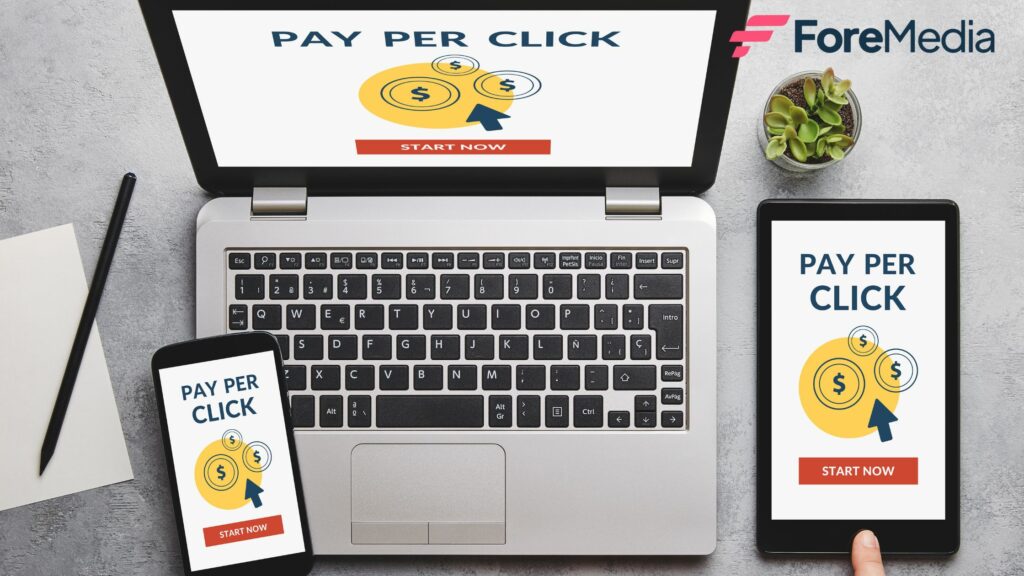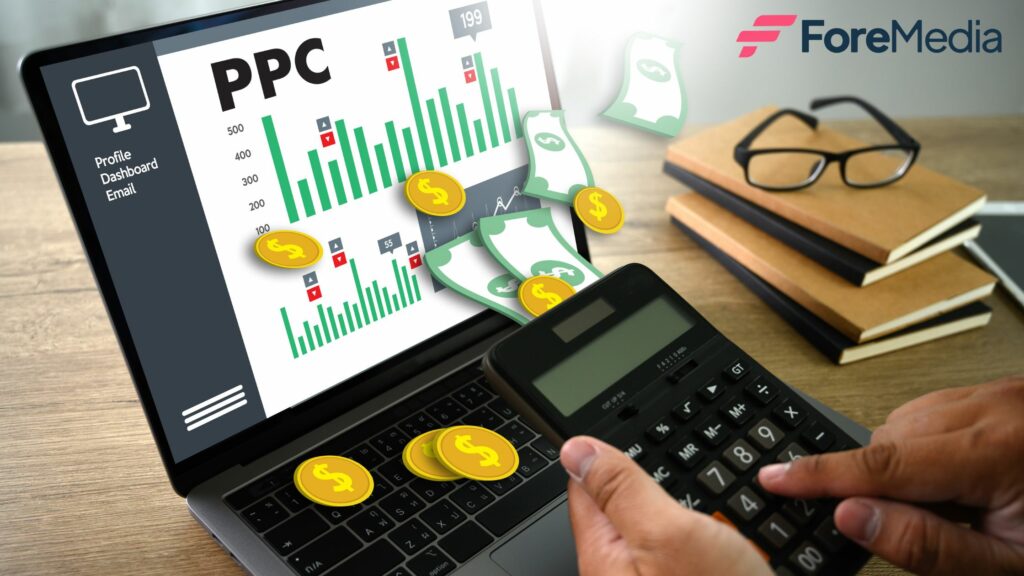Introduction
In the competitive world of digital marketing, attracting qualified traffic to your website is essential for success. While organic methods like SEO can be effective in the long term, sometimes you need a more immediate boost. That’s where pay per click (PPC) comes into play. In this comprehensive guide, we’ll delve into the basics of PPC, how to develop a winning strategy, and best practices to maximize your results.
What is Pay Per Click (PPC)?
Pay Per Click (PPC) is an online advertising model where you pay every time someone clicks on one of your ads. These ads typically appear at the top or side of search engine results pages (SERPs) as well as on relevant third-party websites. Some popular examples of PPC platforms include Google Ads, Microsoft Advertising, and Facebook Ads.
Advantages of Pay Per Click
There are several key reasons why PPC can be a valuable addition to your marketing mix:
- Quick Results: Unlike SEO, which can take months to impact, PPC can start generating traffic almost immediately.
- Precise Targeting: PPC platforms offer robust targeting options, allowing you to reach your exact audience based on factors like keywords, demographics, interests, and more.
- Control over budget: With PPC, you set your daily budget and maximum cost per click (CPC), giving you complete control over how much you spend.
- Valuable data: PPC campaigns provide a wealth of data on keyword performance, user behavior, conversion rates, etc., which can inform your broader marketing strategy.
Developing Your PPC Strategy
Before you jump into creating ads, it’s crucial to take the time to develop a well-thought-out PPC strategy. Here are some key steps:
Research Your Target Audience The first step is to gain a deep understanding of who you are trying to reach. Consider factors such as:
- Demographics (age, gender, location, income, etc.)
- Interests and hobbies
- Challenges and weaknesses
- Online behavior (websites visited, search terms used, etc.)
The more granular you can be when defining your audience, the more effectively you can target them with your PPC ads.

Conduct In-Depth Keyword Research
Keywords are the core of any PPC campaign. You need to identify the terms and phrases that your target audience is using to search for products or services like yours. Some keyword research strategies include:
- Using keyword research tools like Google Keyword Planner, SEMrush and Ahrefs
- Analyzing your competitors’ keywords
- Searching industry forums and relevant social media sites
- Reviewing your organic keyword research
Aim for a mix of high-volume short-tail keywords and more specific long-tail terms to balance reach and relevance.
Set Clear Goals and KPIs To effectively measure the success of your PPC campaign, you need to set clear objectives in advance. Are you aiming to generate leads, drive sales, increase app downloads, or something else? Make sure your goals are Specific, Measurable, Achievable, Relevant, and Time-Bound (SMART).
Additionally, identify the KPIs (key performance indicators) that you will track to evaluate progress. These may include metrics such as:
- Clicks
- Click Through Rate (CTR)
- Cost per click (CPC)
- Conversion rate
- Cost per acquisition (CPA)
- Return on advertising spend (ROAS)
Having a clear set of goals and KPIs will help you stay focused and make informed adjustments to your strategy over time.
Anatomy of a Great PPC Ad
Now that you have a solid foundation, it’s time to start creating your ads. Although the details will vary by platform, most PPC ads will consist of four key components:
- Title: This is the main text of your ad. Make it short, sweet and relevant to your target keyword.
- Description: A couple of lines of text to expand on the key benefits or features of your offer. Use action-oriented language.
- Display URL: The web address displayed in your ad. It should be relevant to your offer and contain your target keyword if possible.
- Ad extensions: Additional information such as site links, location, calls or reviews that you can add to your ad. Use extensions whenever relevant to improve your ad quality.
In general, your ads should be clear, concise and compelling. Focus on key user benefits, incorporate a strong call to action, and include relevant keywords where natural.
Landing Page Considerations Your PPC ads are only half of the equation. To convert all that click traffic into customers or leads, you also need optimized landing pages. A great landing page should:
- Match user search intent and deliver on your ad promise
- Have a clean design, easy to navigate
- Clearly and concisely communicate the value of your offer
- Include a prominent and compelling call to action (CTA)
- Load quickly and look good on mobile devices
Your conversion rate and ad quality depend on relevant and well-designed landing pages, so don’t neglect this crucial component.
Bidding and Budget Strategies
A key part of any PPC campaign is determining how much you are willing to pay per click and how you will manage your overall budget. Here are some factors to consider:
Bidding Models
PPC platforms offer several different bidding models, including CPC (cost per click), CPM (cost per thousand impressions), and CPA (cost per acquisition). The right model for you will depend on your specific goals. For example, CPC is ideal for generating website traffic, while CPA may be better for lead-focused campaigns.
Budgets
You will need to establish both a daily budget and an overall budget for each campaign. Start with a budget that you feel comfortable spending and iterating based on performance over time. Please note that your actual spent budget may fluctuate daily, although it will always average out to your set daily limit.
Bid Adjustment
Most platforms allow you to adjust your bids based on various factors such as device, location, time of day, and more. Take advantage of this to focus your spending where it is most likely to convert or during your peak sales periods. You can also set automatic bidding rules to dynamically adjust your bids based on performance.
It takes experimentation to find the perfect budget and bidding strategy, so be prepared to regularly analyze your campaign data and iterate accordingly.
Measuring and Optimizing Performance
PPC success ultimately depends on a continuous cycle of measurement, analysis and optimization. Here are some of the key metrics and tactics to keep in mind:
A/B Testing
Regularly testing different versions of your ads and landing pages is essential to improve click-through and conversion rates. Test variations on elements such as titles, descriptions, CTAs, images and layout. Let each test run long enough to collect statistically significant data before selecting a winner.
Ad Relevance and Quality
Platforms like Google Ads assign a relevance and quality score to each ad based on factors such as CTR, keyword relevance, and landing page experience. Higher quality ads can receive more prominent placements at lower CPCs, so continually focus on raising your scores.
Keyword Management
Your keywords will need ongoing care and feeding. Closely monitor which terms are performing the best and consider adjusting your bids accordingly. At the same time, it constantly identifies new keyword opportunities to pursue and eliminates underperforming terms to improve relevance.
Funnel Analysis
In addition to ad-level metrics, you should also evaluate how your PPC campaigns are impacting your overall marketing and sales funnel. Track how PPC customers move through the funnel, from initial click to final conversion. Use these insights to optimize the customer journey and drive better ROI.
Keeping up to date with trends
The PPC space is constantly evolving, with new features, ad formats, and best practices emerging all the time. To maximize your success, it’s crucial to stay on top of the latest trends and innovations. Follow industry blogs, attend webinars and conferences, and connect with other PPC professionals to stay ahead. The more you stay educated and adapted, the better the results you will be able to generate.

Conclusion
Pay per click is a powerful tool to drive targeted traffic and accelerate the growth of your online business. By developing a solid strategy, creating compelling ads, designing optimized landing pages, and continually fine-tuning your approach, you can make the most of your PPC investment and achieve your marketing goals.
Remember, PPC success doesn’t happen overnight. Continuous experimentation, analysis and optimization are needed to truly develop highly effective campaigns. But with time, effort, and adherence to the best practices outlined in this guide, you can unlock the vast potential of this dynamic marketing channel and transform your online presence.
Frequent questions
- How much should I spend on PPC? Your PPC budget will depend on several factors, including your overall goals, average CPC in your industry, and the size of your operation. As a general rule, start with a small budget that you feel comfortable spending (say $500-$1000 a month) and adjust up or down based on initial results. Over time, you will be able to determine a level of spending that achieves a positive ROI for your business.
- Which PPC Platforms Should You Use? The right PPC platforms for you will depend on your target audience and goals. For most businesses, Google Ads (formerly AdWords) is a great starting point, allowing you to reach users through Google searches and millions of partner websites. If you focus on a business audience, consider Microsoft Advertising (formerly Bing Ads). For ecommerce or B2C brands, PPC social media platforms like Facebook Ads and Instagram Ads can also be very effective.
- How long does it take to see PPC results? One of the biggest advantages of PPC is that you can start generating traffic almost immediately after launching your ads. However, to really fine-tune your approach and achieve a solid ROI usually requires at least a few months of testing, iteration, and data accumulation. The exact time frame will vary depending on factors such as the competitiveness of your industry, the quality of your ads and landing pages, and how well you have optimized your campaigns.
- How does PPC compare to SEO? PPC and SEO are the two main pillars of any effective search engine marketing strategy. While PPC allows you to pay for instant placement in search results, SEO focuses on long-term organic traffic gains through content and website optimization. Both have their advantages: PPC can generate quick results and gives you more control over your messages, while SEO builds credibility over time and can provide a higher ROI. Ideally, you should pursue a combined strategy that plays to the strengths of each tactic.
- Do I need to hire an agency for PPC? It depends on your level of experience, available resources, and the complexity of your PPC needs. If you’re new to PPC and have a limited budget, it’s certainly possible to learn the basics and run initial campaigns yourself. However, as you scale, working with an expert PPC agency or consultant can help you maximize your results and avoid costly mistakes. A good PPC partner will bring deep platform knowledge, optimization strategies, and the latest industry best practices to drive higher returns on your ad spend.
